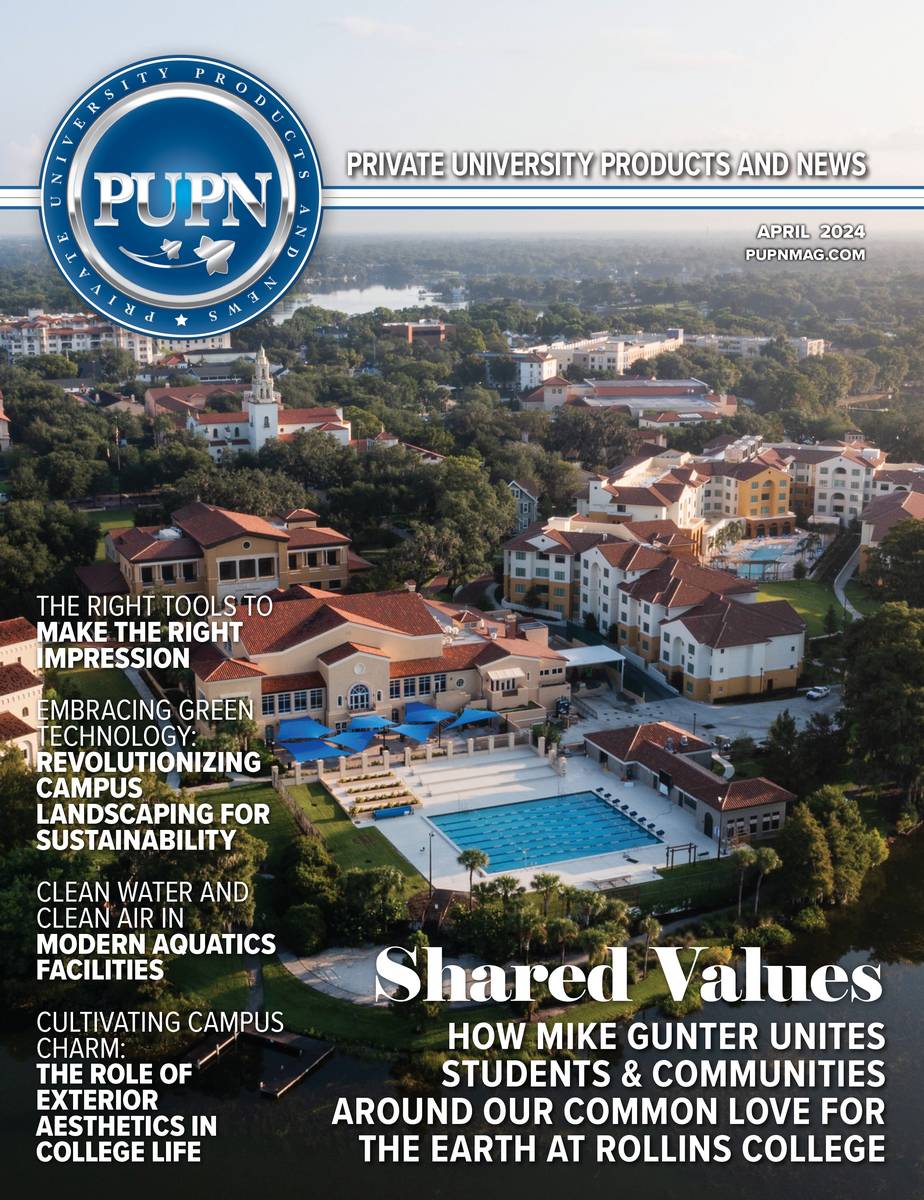Wagner was hired in 2017 to reinstate BSC’s Applied Computer Science program, working with an interdisciplinary team of colleagues to get it up and running. In addition to an assortment of electives, the program’s core courses focus on the study of traditional computer science by applying the material to the real world. For example, students may learn the Linux operating system via a lens of cybersecurity and online vulnerabilities. One of many people who appreciate Wagner’s approach is Jeff Gray, Professor of Computer Science at the University of Alabama.
Wagner and Gray worked together in local high school science fairs when she previously taught at the Alabama School of Fine Arts; he later served as her doctoral dissertation chair. Gray admires the comprehensive work Wagner has done to re-establish the computer science major at BSC. She has created—and until recently, taught—all of the courses, directed multiple undergraduate research projects, and both recruited and retained students.
One way that Wagner has made the program enticing to majors, minors, and the general student population is by welcoming students of all interests and levels. She strives to relate the content of the courses to the students’ individual interests. Her classes function as polar opposites of weed-out courses; she believes that everyone has a place in computer science as well as strengths to bring to the discipline. Marlowe McCraney, senior Applied Computer Science major, has definitely felt Wagner’s trademark support. McCraney says that Wagner “was willing to meet me wherever I was. Her strengths are why the computer science department has grown.”
BSC President Daniel Coleman, who had seen firsthand in his Wall Street trading career how powerful technology can be, decided to learn some computer science himself when he returned to Birmingham a few years ago. Before he became President in 2018, he was a student in Wagner’s Fall 2017 Introduction to Python class. He says, “What struck me about Amber was her ability to manage a class with a broad distribution of abilities; that takes a lot of patience and caring … it was a pleasant experience for a course that can be intimidating.” Wagner’s Department Chair, Professor of Mathematics Bernadette Mullins, agrees, saying that Wagner “has an inclusive teaching style—everyone in the class is welcomed and valued.”
Wagner helps her students explore connections between computer science and almost every aspect of our contemporary society. McCraney, whose senior capstone project is a new, user-focused task manager application, says that Wagner has really shown her that “All fields have a tech aspect you have to consider, including design aspects … This new age of computer science is much more interdisciplinary.” Coleman emphasizes this point, saying, “For Wagner, the point of Computer Science is how to apply and leverage the knowledge.”
Chloe Dunmire, who earned a degree in Applied Computer Science under Wagner’s tutelage, echoes these ideas, saying that Wagner’s Applied Computer Science curriculum “shows the importance of computer science literacy and knowledge for careers beyond software development.” The range of connections Wagner explores with her students is wide, and at times, even a bit whimsical. Mullins reports that “Students used the 3D printer to print a prosthetic limb for a duck.” Additionally—drawing on a lifelong study of tap-dancing—Wagner offered an Exploration Term class combining tap dance and study of electric circuits.
Beyond simply appealing to students who have diverse interests, Wagner focuses a great deal on issues of access and inclusion within computer science. As an example, Coleman discusses one current student capstone project to develop prototype motorized wheelchair simulators for the Hand in Hand Early Learning Center at United Ability in Birmingham, Alabama. Many insurance companies will not pay for a person to have a motorized wheelchair unless they can prove they know how to use one. Coleman says that this project is one of many impressive ways that Wagner makes a difference in the world.
Wagner has long focused on the need for accessibility within computer science; her doctoral project researched computer programs that taught young students to write computer code using virtual Lego blocks. After examining usability issues with these programs for children who have limited motor function, Wagner built a tool so these children could use their voices to interact with such programs. Currently, many of the student projects Wagner is overseeing investigate accessibility. In a contracted class with Wagner, McCraney is evaluating the accessibility of BSC’s campus for those with physical and visual limitations. McCraney has learned from Wagner that “Accessibility must be part and parcel of design from the beginning.”
Wagner routinely invites students to think about the social implications of computer science issues. During Fall 2020, particularly, she explains that her cybersecurity class has discussed the vulnerabilities inherent in increased online interactions brought on by pandemic, as well as how computer science has been used in researching and disseminating information about Covid-19. Wagner calls attention to the ways that artificial intelligence exhibits bias against women and minorities, with facial recognition software as one example.
In her algorithms course, she asks the students to think about equality and distribution of resources by using graph theory to decide on equitable placement of post boxes in a community. “Bias,” she notes, “is built into computer applications, so apps need to be built by diverse groups because we don’t know what we don’t know. I try to model that—I don’t know all the answers.” Wagner also presents her students with a list of Who’s Who in Computer Science, and she strives to include all ethnicities and genders so that her students can see themselves reflected in the list. Wagner’s active mentorship extends beyond the classroom. Mullins reports that Wagner has overseen nineteen undergraduate research projects in her three years at BSC; of these, eleven have been women and five, members of minority groups. One student, Roger Wang, won 2nd place in the national research competition of the Association for Computing Machinery’s Special Interest Group on Computer Science Education (ACM SIGSE), and he had his paper published in the conference proceedings—as an undergrad.
Wagner helps the students she mentors take advantage of multiple opportunities. She helped McCraney secure a tech internship in e-commerce for a fashion company in Los Angeles. McCraney, with Wagner’s help, was also selected to participate virtually in a paid summer Research Experience for Undergraduates at the University of Southern California. Dunmire also appreciates Wagner’s mentorship, saying that, of all her professors, Wagner was “the most invested” in her success. Wagner helped Dunmire find an internship at UAB and identify a competition for her senior research project. Even though Dunmire has graduated, Wagner’s mentorship continues, she is currently helping Dunmire publish her research. Most importantly, Dunmire says that Wagner encouraged her to “find a career in the male dominated computer science world.”
Wagner couples her student-focused approach with a firm commitment to the liberal arts. Even as students learn traditional computer science theories and methods, they focus on ethics, accessibility, and humanity in the tools they use. Coleman confirms that Wagner’s approach aligns with BSC’s tradition of service, and Mullins calls attention to the focus on solving real world problems that occur within Wagner’s interactive classrooms. Above all, Mullins states, students find Wagner’s excitement and energy “contagious,” and they also carry that excitement to other students.
Wagner seeks grant funding opportunities to build her program’s capacity, with the goal of translating those successes into bigger grants in the future. Through a Teach Access grant for curriculum development, Wagner arranged for her students to film users of the online ordering service Shipt at United Ability. Not only did this project give students experience in evaluating and improving computer applications, it gave the students involved an opportunity to interact with adults who have disabilities. These interactions have given students keen and visceral insights about why computer applications need to be accessible.
Some of Wagner’s current seniors are extending this research, building a tool for software to tie in the ADA guidelines to benefit people with visual, hearing, and motor impairments. Wagner also secured a larger grant from the National Center for Women and Information Technology (NCWIT) to help with recruitment and retention of women in her program. She has used some of the grant funding to build lab space, as well as buying a motion-capture camera and additional computers.
Wagner directs her formidable energy to supporting her peers and colleagues, as well. Mullins says that, like many colleges, BSC was forced to quickly move to online learning last spring. Within a week, they had ended in-person classes and trained faculty members how to complete the semester online. Wagner and two colleagues offered workshops for fellow faculty members, many of whom had no experience using a learning management system.
Other peer-support initiatives of Wagner’s include founding the League of Women Coders chapter at the University of Alabama and serving as one of NCWIT’s Academic Alliance national co-chairs. Moving forward, Wagner wants to work within the Birmingham Area Consortium for Higher Education (BACHE) to build connections between computer science programs in area colleges and universities; she sees great potential for cross-college collaborative research and mentorship.
The joy that Wagner takes in her work takes many inclusive forms, from steadfast encouragement of others to seeking out multiple ways to use her discipline to do good in the world.










